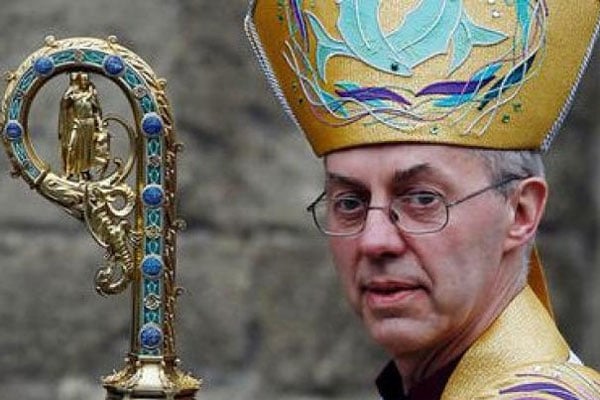Prime
Why homosexuality remains a thorn in the flesh of the Church

Procession. A procession of the clergy at Namirembe Cathedral under Namirembe Diocese in Kampala ahead of service in 2017.PHOTO/FILE
What you need to know:
- The issues highlighted here depict the paradoxical and problematic realities created by this controversial issue.
According to Oxford Advanced Learner’s Dictionary, marriage is a legal relationship between husband and wife.
The Anti-Homosexuality Bill 2023 was finally signed into law on May 26. It may actually interest some readers to learn that on this occasion, President Museveni assented to four other laws, namely: Markets Act 2023, Micro Finance Deposit-Taking Institutions Act 2023, Museums and Monuments Act 2023 and Law Revision (Miscellaneous Amendments) Act, 2023.
However, the most contentious of all made headlines for justifiable reasons. Reactions from the West were predictable: Threats to withdraw donor funding, cancellation of Speaker Anita Among’s visa to United States and other rhetorical interpretations that suit the Western agenda in Africa.
Similar to its predecessor versions, the Anti-Homosexuality Act (AHA) 2023 has already been challenged in the Constitutional Court by a handful of different parties. It may be too early to predict the direction which the verdict will take, however, it is very unlikely to differ from its historical patterns where the legislation has been quashed on two occasions.
I was particularly drawn by the reactions from some religious leaders who lauded the President for assenting to the controversial law. Pastor Joseph Sserwadda remarked, “the enemies of righteousness have been finally silenced” whereas Archbishop Stephen Kaziimba Mugalu seized the moment to urge Ugandans “to foster self-reliance and mutual support, particularly in light of the potential reduction in external aid.”
Most noticeable in the entire intellectual circus hovering over this problematic issue is the “silent voice” of the Catholic Church in Uganda. We are a country that is predominantly Christian (82 percent) where Catholics, Anglicans and Pentecostals constitute 39 percent, 32 percent and 11 percent of the population, respectively. This makes the Catholic Bishops’ position on homosexuality very critical. Cognizant of our African cultural context, and simplistic interpretative tendencies such as those demonstrated by the social media army, the “silence” of Catholic bishops might be the most appropriate response for the moment.
Critical minds interested in following socio-religious affairs may have to wait longer to be treated with the kind of categorical carefully worded positions on homosexuality that mirror Pope Francis’ more welcoming tone. However, Archbishop of Kampala Paul Ssemogerere shared some of his views on the occasion organised to reflect on the 10 years pontificate of Pope Francis:
“Homosexual tendencies and acts are sinful, according to the teaching of the Catholic Church and Jesus came to fight sin.” However, the archbishop made a clear distinction between the sin and sinner. “If we are fighting immorality…” he said, “… you should know that Jesus came to fight sin but not to fight a sinner.” Herein raises a problematic issue which remains a thorn in the flesh of the Church even with the new law: how are homosexuals to be treated within the Church?
Three concerns that the Church has to address.
One, pastoral care of homosexuals. The Catechism of the Catholic Church invites persons who feel “deep-seated” attraction towards others of the same sex to lead a life of chastity [celibacy] through which they can reach an inner freedom by prayer and sacramental grace in order to attain Christian perfection. This requires the church to create safe spaces where homosexual persons can feel welcome to receive God’s mercy, friendship through counselling and discernment.
Otherwise, it remains idealistic and unrealistic for the Church to expect one to lead a celibate life without spiritual guidance.
Two, opponents of AHA have cited social stigma as one of the factors that may deter homosexuals from fully accessing HIV/Aids treatment from health centres. Inasmuch as this may has been quashed by medical officials and others, including Chris Obore in his response on Western threats, social stigma against homosexuals remains a reality - because these persons feel targeted – and may likely extend to other social spaces including churches. Three, Article 3(1) of AHA punishes the offence of aggravated homosexuality by death sentence, which contradicts the Church’s strong pro-life position. In response, some Church leaders have lightly voiced their concern over the death sentence and urged judicial officials to opt for other hefty alternatives such as life imprisonment to punish perpetrators of aggravated homosexual acts.
However, that prelates can dictate on how the Judiciary should execute its duties is questionable, provided it is within the law.
The issues highlighted here depict the paradoxical and problematic realities created by this controversial issue, which becomes further compounded when criminalised, and yet lauded by the Church.
Augustine Bahemuka, Commentator on issues of peace and society. [email protected]




